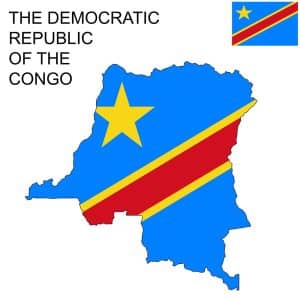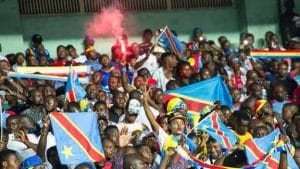Headlines
The Democratic Republic of Congo: A History of Violence, Resistance, and Hope
The Democratic Republic of Congo (DRC) is a country in Central Africa that has a complex and turbulent history. It was founded as a private domain of King Leopold II of Belgium in 1885, under the name of Congo Free State. It became a Belgian colony in 1908, under the name of Belgian Congo. It gained its independence in 1960, under the name of Republic of the Congo. However, it faced political instability, civil wars, coups, and foreign interventions. In 1971, it changed its name to Zaire under the dictatorship of Mobutu Sese Seko. In 1997, it was renamed Democratic Republic of Congo after Mobutu was overthrown by Laurent-Désiré Kabila, who faced another regional war that lasted until 2003. Since then, the DRC has struggled with ongoing conflicts, poverty, corruption, and human rights violations.
See Population, Official Language And More…

The Democratic Republic of Congo

The Democratic Republic of Congo: A History of Violence, Resistance, and Hope is a title that reflects the main themes and challenges that have shaped the country’s past and present. Here are some points that could be discussed under this title:
The DRC has experienced violence from various sources, such as colonial exploitation, ethnic tensions, regional wars, rebel groups, foreign interference, and state repression. The violence has caused millions of deaths, displacements, human rights abuses, and humanitarian crises.
The DRC has also shown resistance to the forces that have oppressed and exploited it, such as nationalist movements, pro-democracy activists, civil society organizations, and peacekeepers. The resistance has challenged the status quo, demanded justice, and advocated for change.
The DRC has not lost hope for a better future, despite the hardships and obstacles it faces. The hope is expressed in the cultural diversity, artistic creativity, social solidarity, and political participation of its people. The hope is also supported by the international community, which has provided humanitarian aid, diplomatic mediation, and development assistance.
The DRC has a long and rich pre-colonial history, with many kingdoms and empires that flourished in the region, such as the Kongo, the Lunda, the Luba and Kuba1. The earliest known human settlements date back to the Middle Stone Age, about 90,000 years ago.
The DRC was colonized by Belgium in the late 19th century, after King Leopold II claimed it as his personal property. He exploited the natural resources and enslaved the local people, causing millions of deaths and atrocities. The international pressure forced him to cede control to the Belgian government in 1908.
The DRC gained its independence in 1960, after a nationalist movement led by Patrice Lumumba. However, it faced a series of crises, such as the secession of Katanga and South Kasai, the assassination of Lumumba, the coup by Mobutu Sese Seko, and the intervention of foreign powers like the US and the USSR.
The DRC was renamed Zaire in 1971, under Mobutu’s dictatorship. He ruled for 32 years, imposing a one-party system, suppressing opposition, and enriching himself and his allies. He also supported anti-communist rebels in neighboring countries like Angola and Rwanda.
The DRC was renamed again in 1997, after Mobutu was overthrown by Laurent-Désiré Kabila, who led a rebel coalition backed by Rwanda and Uganda. He faced a second civil war that involved several African countries and rebel groups and lasted until 2003. He was assassinated in 2001 and succeeded by his son Joseph Kabila.
The DRC has been struggling with ongoing conflicts, especially in the eastern provinces, where various armed groups fight for control of land and resources. It has also faced political instability, corruption, human rights violations, poverty, and humanitarian crises. It held its first democratic elections in 2006 and 2011, but they were marred by violence and fraud. In 2019, Felix Tshisekedi became the president after a disputed election that was challenged by his rival Martin Fayulu.





